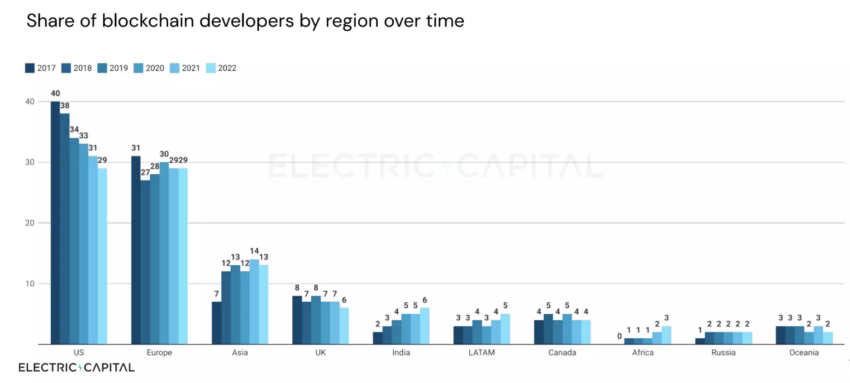BTC hovers around $27K after CFTC moves on Binance

It’s the CFTC vs. liquidity
Good morning. Bitcoin starts Asian session down 3.8% to $26,958 after US Commodity Futures Trading Commission (CFTC) sued crypto exchange Binance and founder Changpeng Zhao, alleging they offered unregistered crypto derivatives in the US
Binance’s BNB token is down 5.9% to $308 on the charges.
The question among traders is how much of a going concern Binance is now that the CFTC has dealt this blow. On the one hand, Binance’s CEO called the CFTC complaint “unexpected and disappointing,” but in February the exchange said it was willing to pay a monetary penalty to “make amends” for past sins.
At the same time, there is some debate about how much traders shrug off the CFTC’s allegations versus how much bitcoin has an ability to react to news due to a lack of liquidity.
“When you have low liquidity, you tend to get very quiet markets,” said Dan Gunsberg, co-founder of Solana-based derivatives liquidity protocol Hxro, during a recent CoinDesk TV appearance. “You get these jumps in the market and these liquidity vacuums, where things move to a new price and immediately settle back down.”
As the CFTC goes after Binance, the decentralization narrative continues.
Decentralized derivatives exchange GMX saw its token rise 4% in the past 24 hours, almost paralleling how tokens of decentralized ether-liquid staking platforms rose in February when the SEC took aim at staking.
China Banks’ Push for Hong Kong Crypto Business Faces Headwinds
China’s state-owned banks’ Hong Kong branches – semi-autonomous entities operating under Hong Kong rules – are actively seeking crypto business, in anticipation of the first phase of the special administrative region’s regulations in June. But opening an account with them is a completely different matter.
Bloomberg reported on Monday that the banks making the postings have been given the go-ahead by Beijing and their respective headquarters.
Sources from several crypto companies in Hong Kong who have either been presented by the banks’ sales representatives, or made in-depth inquiries, all say that the criteria for opening an account are burdensome and the KYC/AML process is longer than opening a regular business account.
For example, banks prefer that managers and key personnel of the crypto company live in Hong Kong. A clear block would be if they are Chinese citizens or US citizens. If the company is owned by a Singapore-based parent company, that company must be a licensed entity of the Monetary Authority of Singapore.
Sources were also told to expect a lengthy account opening process.
These banks, such as the Bank of China and the Bank of Communications, are some of the world’s largest, and it would have been unthinkable a few years ago that they would actively encourage crypto business given Beijing’s tough stance on the matter and the general reluctance of major banks to to engage with crypto.
After all, in the US, Silvergate and Signature found their market niche for this exact reason, with analysts saying the crypto industry will have “difficulty finding traditional banks to work with it” after their demise. These two banks made—and lost—their fortunes in crypto: At the turn of the decade, they were both small, unknown banks before they embraced crypto; Silvergate reported $2.12 billion in assets in December 2019 and reached a peak of $16 billion in December 2021.
Although both Silvergate and Signature grew significantly throughout crypto’s boom years and institutionalization, their relatively small size means they fell faster than they would if they were larger like some of their peers.
But not everyone believes this is the first chapter of something new, given the tough onboarding process.
“The city’s regulation of digital assets is generally friendly and encourages banks to work with crypto companies, but banks still have strict requirements in place that make it difficult for crypto companies to expand and grow,” Adrian Wang, founder and CEO of Metalpha, a Hong Kong-based digital asset management company, told CoinDesk. “We have yet to see much progress in the banking sector to embrace crypto. Hopefully that will change soon.”
A deal has been finalized for what remains of Silicon Valley Bank. J. Christopher Giancarlo, senior counsel at Willkie Farr & Gallagher and former chairman of the Commodity Futures Trading Commission, shared his reaction. Additionally, Cathie Wood’s ARK Invest bought $12.6 million in Coinbase shares on Friday. MarketVector Indexes digital asset product strategist Martin Leinweber shared his crypto market analysis.
























